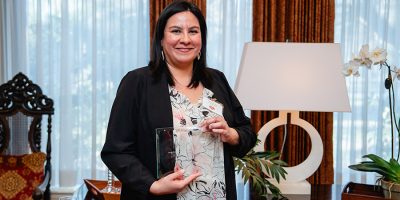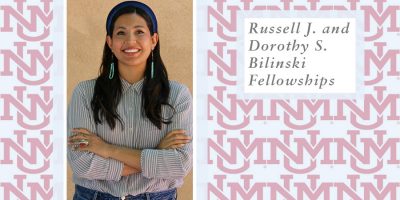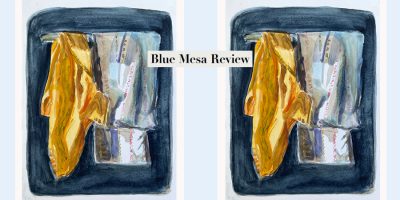Three Doctoral Candidates have been awarded Russel J. and Dorothy S. Bilinski Fellowship in the Humanities from the Bilinski Educational Foundation for 2020-2021.
Gerard Lavin, doctoral candidate in British and Irish Literary Studies, is one of the recipients. His dissertation focuses on the interactions between textual and oral cultures in the middle ages, exploring the use of oral rhetoric in the works of the Venerable Bede, in which he argues that the introduction of literacy did not present a binary choice, but rather functioned as one disruptive element among many within the established but dynamic oral culture of seventh-century England.
Lauren Perry, doctoral candidate in American Literary Studies, is another recipient. She specializes in nineteenth and twentieth century American literature, along with Southwestern Literature and texts that interrogate human-animal relationships. Her dissertation, “Animal Texts: Critical Animal Concepts in Environmental Literature for the Anthropocene” illustrates the critical contribution environmental literature makes to animal studies and animal conservation. Perry analyzes the work of prominent environmentalists and animal activist writers of fiction and creative nonfiction that, through animal studies readings, also establish critical conceptions of animal counterparts in the environment. “Animal texts” redefines humanities’ role in environmentalism. Additionally, Perry is the recipient of the Charles Redd Fellowship in Western American Studies. This award funds archival research for her dissertation in the L. Tom Perry Special Collections Library at BYU.
David Puthoff, doctoral candidate in 19th Century American Literature has also been selected as a recipient of the Bilinski Fellowship. His dissertation examines how in several key texts African American authors theorize and practice solidarity in the antebellum, Civil War, and Reconstruction eras. Drawing on political philosophy, historical context, affect theory, African American print culture studies, and above all, the primary texts, Puthoff explores how authors such as Frederick Douglass, Francis Harper, Harriet Wilson, and Martin Delany imagined characters recognizing common interests across class and race lines. This project will contribute to a still-emerging scholarly understanding of solidarity as a political emotion and a social practice.




